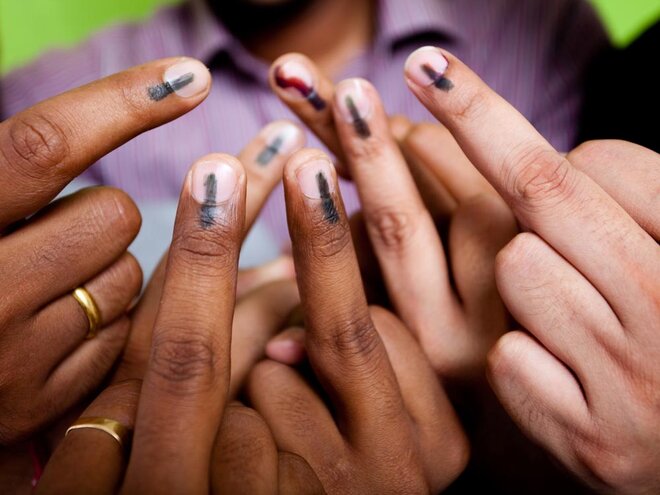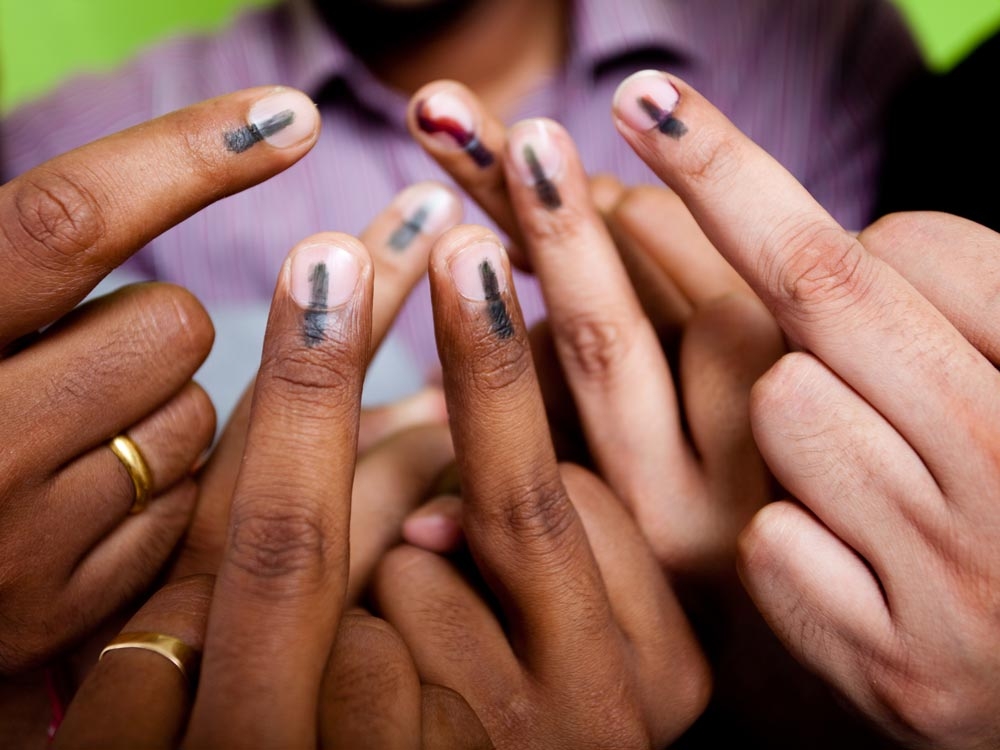
I have voted only thrice in general elections, once in England, where, as a Commonwealth citizen, I was entitled to cast my vote, and twice in India. Why only twice in India? Because we were always on the move, from one Delhi colony to another, and the election people simply could not catch up with us. Incidentally, on all three occasions, my candidate lost, and, once he managed to lose his deposit too.
In England, it was my first time to cast my vote, and I was amazed at how simple the whole thing was. I often wondered why they didn't have elections more often, as they do in Switzerland. It was all very quiet, even on the eve of the poll, as if they didn't want outsiders to know about it. In my constituency, the so-called Royal Borough of Kensington, old ladies, looking like duchesses, which some of them must have been, buttonholed me at the tube station and whispered the candidate name in my ear, as if they were slightly ashamed of him or her. I did not, of course, vote for their candidate which may be one reason why he or she won.
In India, of course, things were different, as they always are. My first election was in Bombay, which takes its elections very seriously. Even children take out processions, as they do during Ganesh festivals, and ask not only for your vote but also your money. There were gaudy posters everywhere and, of course, loudspeakers which intoned the candidate's name every few minutes lest you should forget it. My candidate, or rather the candidate I voted for, lost his deposit, though when I met him later, he didn't seem to mind it.
Things got really serious when we moved to Delhi and I began taking part in politics more actively. It is easy for journalists to do that, as most of them have time on their hands and are good at drafting speeches. I became something of a specialist in drafting manifestos, an easy task since nobody read them.
But things really got serious during the Emergency when several of your friends found themselves suddenly behind bars, and burly policemen showed up unexpectedly outside your house. I was advised by my friends to go underground, but this was easier said than done. But I did manage to grow a beard and go about in dhoti, like a sanyasi, though the police guard outside our house was not fooled.
When the elections were announced, we felt a big load had been lifted off our chest, and I got down once again to drafting manifestos, a skill I had perfected during the Emergency. The havaldar outside the house disappeared but occasionally during some nights a jeep or two would appear at the gate, as if to warn that things had not really changed and elections or no elections, we should be on our guard.
On the counting day, we gathered at the press club, a seedy haunt not far from the parliament, and quite a beehive of activity even late into the night. There were at least a hundred of us, crowding in the smelly building, which, after months of Emergency, had suddenly sprung to life, waiting for the results, though the tiny TV set had suddenly conked out and functioned only intermittently.
A friend, whom I had not seen for months, suddenly appeared on the scene with a big bag, which, he said, contained some papers and old clothes, in case the government had other ideas. "What other ideas?" I asked, as innocently as I could. "I shall tell you later", he said, winking. Just at that moment, the TV announced that Mrs G, as we called her, had lost and so had her son. My friend with the bag got up, opened his bag and started distributing laddoos. For the first time in my life, I helped myself to half a dozen of his laddoos and started devouring them, one by one, like a man possessed. Incidentally, my candidate lost as usual, though this time, he did not lose his deposit!

